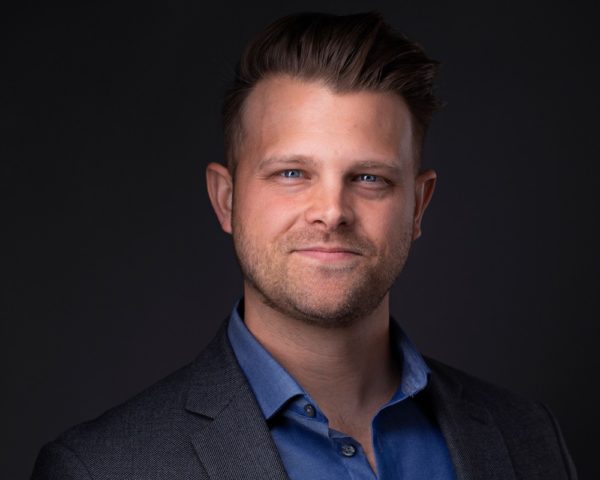In “TerraGenesis: Space Settlers,” gamers explore the galaxy and bring life to desolate planets by populating their own paradise. The terraforming simulator features highly-detailed celestial animation and immersive gameplay that uses real science from NASA to create an experience that’s out of this world.
Closer to Earth, games such as this one, created by Edgeworks Entertainment, are pushing the boundaries of video gaming as we know it. They’re also launching a tangible esports industry and accelerating a digital economy previously reduced to entertainment or kids’ play.
That’s not the case anymore. Increasingly sophisticated game design, the growing influence of esports leagues and the popularity of online streamers like Pewdiepie and Jacksepticeye mean that video games are growing up — and here to stay for the foreseeable future. Investors and cities across the US are already starting to take note.
How does esports work in Milwaukee?
Esports is short for “electronic sports” and refers to competitive gaming watched by spectators. In 2018, more than $4.5 billion was invested in the esports industry alone, representing an 837% bump from the previous year, according to Deloitte. And the global fan base is projected to keep growing: Newzoo predicts the number of esports enthusiasts will generate nearly $1.38 billion in revenues globally and surpass a total audience of 418 million.
While residents of countries like China constitute the largest share of esports enthusiasts overseas, the industry is taking root here at home — including in Milwaukee, where one organization is pushing Cream City to capitalize on the growing esports industry.
Brandon Tschacher is the founder of MKEsports Alliance, an organization focused on growing the culture and connectivity of regional esports groups and gamers. The group also works with business and community partners to support the industry through infrastructure and development initiatives, aiming to put Milwaukee on the esports map.
Tschacher, a gaming enthusiast, launched the organization two years after he Googled “esports Milwaukee” and discovered a highly fragmented scene. After going down a rabbit hole, he managed to find local gamers and esports groups and sought to find a way to bring them together. What began as a passion project quickly turned into a full-time endeavor.
“This is the state’s largest metro and as an interested participant, I just wanted to find out more,” Tschacher told Technical.ly. “I went down that path of being connective tissue of all things esports. Our priority is to see the industry thrive and grow. We needed to create more opportunities to pioneer ways for people to actually make money in the esports economy.”
For Tschacher, esports is an industry flush with opportunity. By his estimates, Wisconsin could bring in roughly $330 million just by billing itself as an esports destination.
Tschacher said he spent the last two years promoting esports to businesses and the city as a way to grow the region’s digital economy. He has partnered with VISIT Milwaukee and the Metropolitan Milwaukee Association of Commerce to uncover opportunities for league events and workforce development; the latter component involves boosting talent attraction and retention, especially as Boomers retire and Millennials fill their posts.
“I get a lot of furrowed brows,” Tschacher laughed. “The reality is: The average gamer in the US is 31. But it is primarily a Gen Z mechanism for gaming; it’s their currency. The reality of the digital economy is that it is present. It is an industry. The dollars speak for themselves. When you break that down, you understand why it’s growing.”
Tschacher points to the recent successes of the Wisconsin eSports Summit, which was held at MECCA in the Deer District, and the Milwaukee Bucks’ esports team, Bucks Gaming. That team beat the Wizards District Gaming team to win the 2022 NBA 2K League championship — and a $500,000 prize.

Brandon Tschacher of MKEsports Alliance. (Courtesy photo)
A STEM education vehicle
Outside of the business community, the MKEsports Alliance has also partnered with area schools to use gaming as a tool for STEM learning. Friendly competition by way of esports leagues is one way to build the pipeline for future tech careers and improve equity, impact and inclusion across the workforce.
“Coding is hard,” he said. “It’s hard to be an engineer. But if I could teach you Python coding through Rocket League, sign me up. One thing we’ve learned: If you can attach a gaming rider to those topics, you get incredible adoption. This is more than people just playing games on their phone at home.”
Unlike most gaming enthusiasts, Tschacher didn’t grow up playing video games. A strict religious upbringing in rural Jefferson meant video games and television were largely out of the question. It wasn’t until his 10th birthday that he got to test his video game skills on a Playstation One — a magical experience for Tschacher, who got to play “NBA Live ‘98” as his favorite player, Kobe Bryant.
“That was really meaningful in my life,” he said.
While he doesn’t negate the benefits of living in a video game-free household, he wishes he was introduced to the power of its technology earlier on. In the decades that followed, he made up for lost time by becoming an avid gamer and retro game collector. These days, he’s more focused on steering the esports ecosystem’s potential for broader impact.
Tschacher ultimately believes that it’s a great time to be entrepreneurial in the esports world.
“In North America, we are still on the curve of adoption, and [esports] is still growing,” he said. “Our goal is to keep people engaged and to foster dialogue and advocate for the city as much as possible as an esports destination. And it’s fun; we’re literally talking games.”
Subscribe to This Week in Milwaukee Rising:

This article appears as part of This Week in Milwaukee Rising, a weekly newsletter from Technical.ly highlighting the innovators bringing a more just, equitable and dynamic Milwaukee economy. Subscribe here. The series is underwritten by American Family Insurance Institute for Corporate and Social Impact.
Before you go...
Please consider supporting Technical.ly to keep our independent journalism strong. Unlike most business-focused media outlets, we don’t have a paywall. Instead, we count on your personal and organizational support.
Join our growing Slack community
Join 5,000 tech professionals and entrepreneurs in our community Slack today!

Entrepreneurship is changing, and so is the economic development behind it

Tech Hubs’ new $210M funding leaves Baltimore and Philly off the table

Here’s what to know before using AI to craft your brand’s social media posts


